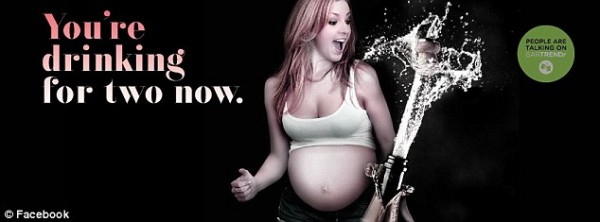
Pregnant women are under attack—or so it seems. Actually, according to the Center for Disease Control (CDC), all women who might become pregnant ever are at risk. In February, the CDC released a report estimating that around 3 million women “are at risk of exposing their developing baby to alcohol because they are drinking, sexually active and not using birth control to prevent pregnancy.” Since then, many have bashed the CDC for advising women to live as though they are “pre-pregnant,” abstaining from drinking if they are not on birth control or if they are even considering getting pregnant. Coupled with growing threat of the Zika virus and its links to birth defects, such suggestions have propelled discussions of women’s roles in preventing catastrophic disability. Sociologists suggest that perceptions of women’s behavior are closely tied to ideas about the morality of motherhood. In particular, women who appear to resist common conceptions of what it means to be a “good” mother are subject to greater social control.
In American culture, motherhood is inextricably tied to morality. Moral arguments against abortion often rely on particular conceptions of sexual behavior, family life, and care for children. The ideology of “intensive mothering” demands that women be self-sacrificing and devote extensive time and energy to their children’s wants and needs — time and energy that many working women cannot afford.
- Sharon Hays. 1996. The Cultural Contradictions of Motherhood. New Haven, CT: Yale University Press.
- Kristin Luker. 1984. Abortion & the Politics of Motherhood. Berkeley: University of California Press.
This emphasis on mothers’ devotion to their children places them under considerable scrutiny, not only while raising children, but also during pregnancy. For instance, the “discovery” of Fetal Alcohol Syndrome heightened concerns over drinking during pregnancy. This made pregnant women the individual bearers of responsibility for the well-being of future children, and made them susceptible to moral outrage for behaviors like drinking. (Bucking the trend, the New York City Human Rights Commission has just recommended that visibly pregnant women cannot be discriminated against if, for instance, they order a glass of wine in a bar.)
- Elizabeth Armstrong. 2008. Conceiving Risk, Bearing Responsibility: Fetal Alcohol Syndrome and the Diagnosis of Moral Disorder.
Poor women, especially poor women of color, face a greater burden under dealized conceptions about what it means to be a “good” or “fit” mother. Not only are they regularly depicted as immoral or unfit, they are also criminalized and sanctioned at higher rates. Historical analyses show pregnant women are arrested for stillbirths, miscarriages, using drugs while pregnant, as well as incarcerated to prevent abortion. Poor women labeled “high risk” are prosecuted for failing to comply with medical advice when their fetus or baby dies, thus they are ironically discouraged from seeking care during pregnancy. Just as the “crack baby” became a symbol of the irresponsibility of poor, black women in the 1980s and ‘90s, Zika exposure and alcohol use are invoked today to place mothers and potential mothers under continued scrutiny.
- Lisa Handwerker. 1994. “Medical Risk: Implicating Poor Pregnant Women.” Social Science and Medicine 38(5):665-675.
- Enid Logan. 1999. “The Wrong Race, Committing Crime, Doing Drugs, and Maladjusted for Motherhood: The Nation’s Fury over ‘Crack Babies’.” Social Justice 26(1):115-138.
- Jeanne Flavin. 2009. Our Bodies, Our Crimes: The Policing of Women’s Reproduction in America. New York: New York University Press.

Comments